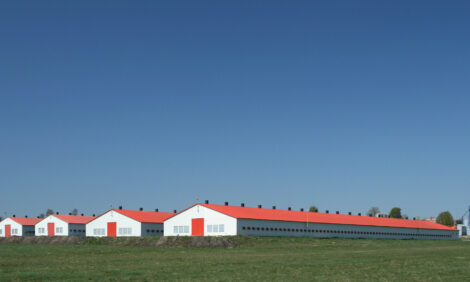



Poultry Industry Council develops new resources for small flocks
Small flock sites overwhelmed emergency response to avian influenzaHeadquartered in Ontario, Canada, the Poultry Industry Council is developing new resources and outreach support for small flock and non-supply managed poultry flocks, according to a press release from the council.
The avian influenza crisis of 2022 impacted the entire poultry supply chain, from farmers, to those moving poultry products through active control zones, to suppliers traveling in and out of zones and more. On the industry side, supporting the large number of active infected premises—particularly small flock sites—nearly overwhelmed the emergency response system. The amount of industry and government resources, time invested and financial impacts were significant.
To support and mitigate further impacts, specifically to small flock and non-supply managed flocks, the governments of Canada and Ontario have established a “Small Flock Future State” project with Poultry Industry Council (PIC) in the amount of $300,000 over two years, funded under the Sustainable Canadian Agricultural Partnership. The intent is to create proactive outreach and information sharing resources as well as to train a roster of case workers to support active infected premises.
“Ontario’s poultry producers know first-hand the unique challenges facing their sector and the measures needed to safeguard their flocks. This program will help equip them with the right tools and information to increase small flock sustainability and resilience,” said Lloyd Longfield, Member of Parliament for Guelph.
“Partnering with the Poultry Industry Council on a proactive approach to flock management will help support efforts to mitigate the threat posed by avian influenza,” said Lisa Thompson, Ontario Minister of Agriculture, Food and Rural Affairs.
“The Ontario government remains committed to supporting the agri-food industry by making investments that will help improve productivity, competitiveness and resilience - goals we have committed to in our Grow Ontario Strategy," she added.
“This is a unique opportunity for PIC to support OMAFRA’s existing outreach to small flock and non-supply managed stakeholders through education and resources,” says PIC Chair Caroline Gonano.
The project will take two years to complete and begins with the development of novel online and paper-based informational resources for farmers. The new website will initially house and collate existing information on biosecurity and disease prevention, animal welfare and details on Avian Influenza adapted to a small flock perspective.
The original Small Flock Kits, which OMAFRA developed, will be updated and revived into kits that will be handed out at key dissemination locations such as feed supply shops, or by ordering online.
“One key way to help protect the broader commercial industry is to enhance knowledge in disease prevention and management for everyone involved in poultry, including small flock operators,” says Gonano. “PIC is uniquely positioned to develop resources and engage with the diverse small flock and non-supply managed sector and has AAFC and OMAFRA as partners in making the project successful for the betterment of the sector overall.”
A separate component of the project is to train available industry people to act as “case workers” in the instance there is an overabundance of small flocks affected by HPAI and needing a coach or liaison to assist them through the response process, so that business can return to normal. The United States Department of Agriculture (USDA) has a similar training program for Case Workers who are imbedded within the Incident Command System, however as a first go at developing this case worker resource, the Ontario personnel will work with Feather Board Command Centre (FBCC) to assist and coach stakeholders through the process.
The project kicked off June 5, 2023. Phase one is expected to roll out over the summer of 2023.









